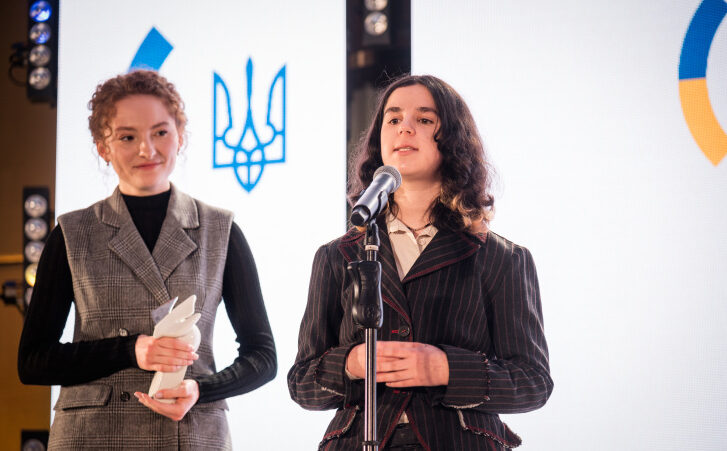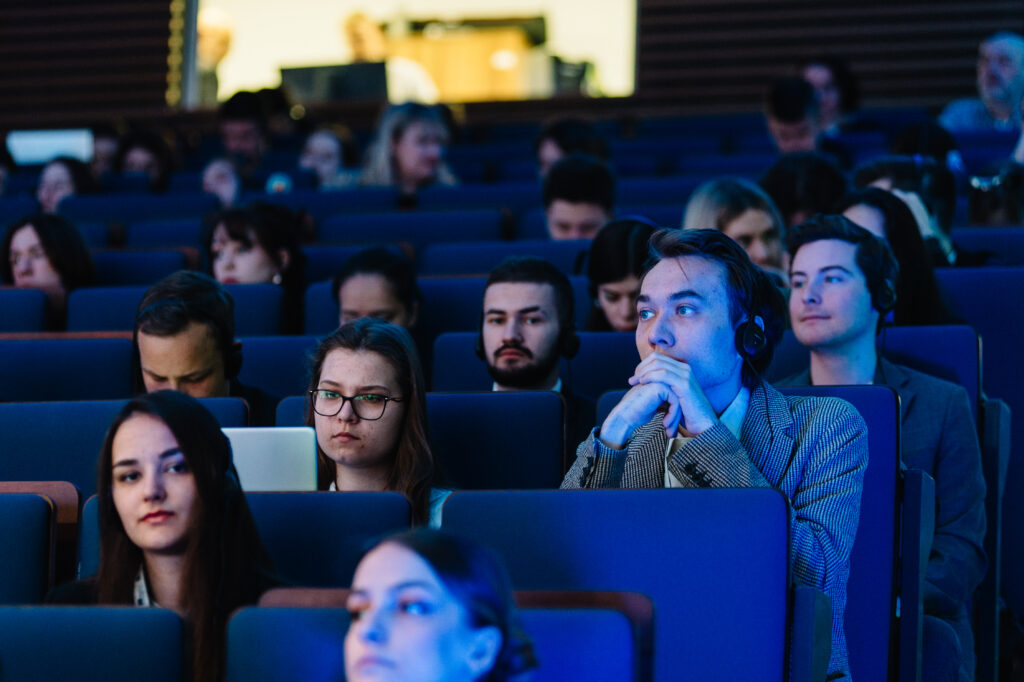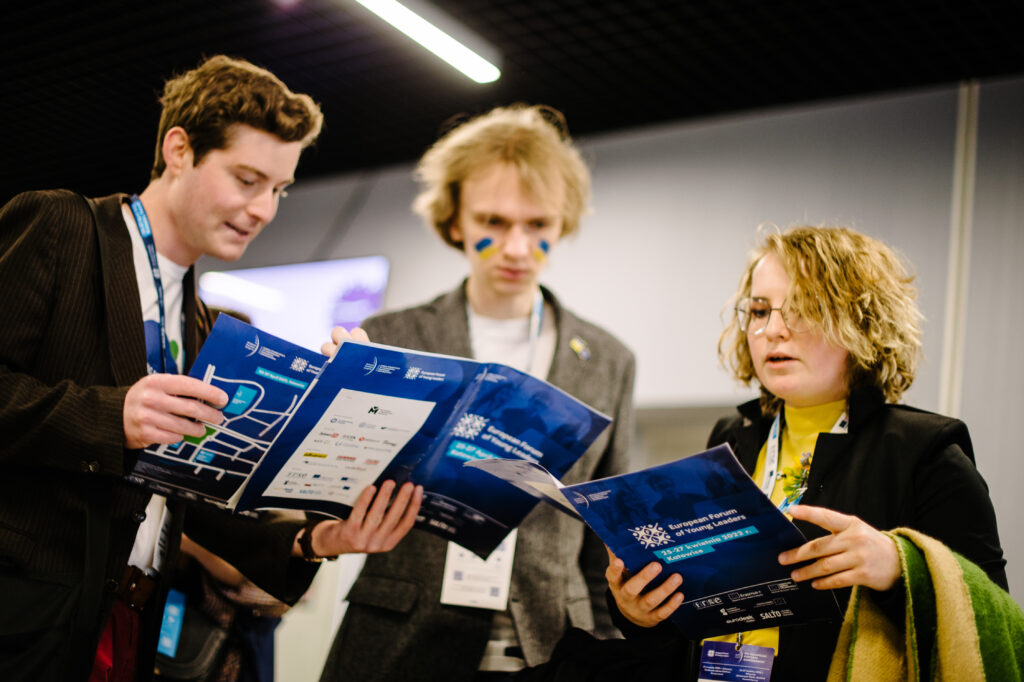
Conflicts and cybersecurity: global threats that make us think more profoundly
On 25-27 April, Young European Ambassadors participated in the European Forum of Young Leaders, a side event accompanying the annual European Economic Congress, held in Katowice, Poland. More than 50 YEAs gathered at the meeting to discuss the ongoing war in Ukraine and to share opinions on how its implications would impact European citizens and countries of the Eastern Partnership and Western Balkans.
YEAs were able to attend plenty of sessions and various workshops on different topics. The value of the Forum was its interdisciplinarity, with several cross-cutting discussions that allowed participants to have a global overview of the challenges our society faces today.
One of the sessions of particular interest to me was about ‘Global threats today. Cybersecurity and conflict’. Due to the fact that Ukraine currently finds itself at the most difficult time of its history due to the unprovoked Russian invasion, it is important to analyse all the threats that come along with the Russian aggression. And the area of cyber-security is one of the most strategically important elements of warfare in the 21st century.
You don’t need to possess some special expertise to understand that the digital revolution is an ongoing process. The impact of information and communication technologies is ever more more significant in our lives every day. Technological progress doesn’t stop, and mainly drives on its own toward new high-tech developments. Simultaneously, along with the development of digital technologies development, the vulnerability of online security is scaling up significantly.
During the session, experts from Defence24.pl shared their opinions on how the war in Ukraine will impact cyber-security in general and whether to expect more actions from the Russian aggressor in terms of hacking/leaking data and information. The panel discussion was run by three experts in the Polish cyber-security defence area. One interesting point they made is that there is an overestimation of cyber warfare, and that a third world war would not be fought between robots.
The Ukrainian case shows that cyber warfare started with attacks on civil infrastructure targets and continued to develop in social media channels. One of the points that experts raised was that the Russian goal within the current cyber war (not only in Ukraine) was targeting the NATO presence in the countries of the former Warsaw Pact. However, so far, this aim had totally failed, instead rebounding against the Russian Federation.
Panelists also raised the issue of the global ‘hacktivist’ Anonymous group currently involved in the cyberwar against Russia. Despite the fact that the FSB in Russia works a lot on the investigations of spies across the country, ‘Anonymous’ still manage to keep their identities hidden, and experts said it was impossible to know who was behind current group actions. As one is able to observe, the current cyber warfare is not only about the fight between Ukraine and Russia but between the whole world and the Russian Federation. That makes cyber-security even more important to consider as one of the essential aspects of the entire war.
Experts also raised the point that all digital devices have certain weak points and might be vulnerable to different types of threats, but especially that human beings turn out to be the weakest link in cyber-security. Panelists also brought attention to the cyber-security attacks in Estonia in 2009 and 2010 when the western world managed to reveal the names of the hackers behind the attacks.
The session finished with recommendations from experts for young people, in particular, on how to build cyber-security awareness in today’s rapidly changing realities. The most important thing is to invest in self-education and training on cyber-security, while critical thinking is essential when dealing with all types of digital technologies. One more important piece of advice is to use cloud computing for the safety of our data. Investment into the knowledge, privacy, and building of resilience are the keys to finding ourselves more confident within cyber-security realities. The meeting also raised the need for dialogue among young people and adults, since today’s teenagers are way more aware and developed in terms of cyber-security than their parents. The last point I really liked was the comparison of cybersecurity to health care. You need take care of yourself constantly in order to stay strong and resilient against any type of vulnerability.
This session on cyber-security was just one out of the workshops that were suggested for participants to attend within the Forum. Once again, I am hugely grateful to the organisers, and look forward to participating in the next events with the YEAs.
LATEST

Building Europe: Poland’s experience of joining the European Union and lessons for Ukraine

World Health Day 2024: My Health, My Right

EUREKA MEETS EUROPE – opportunities to develop and study. My experience

Can you wear pink in the workplace?

Go where your deepest fears lie: finding the courage to overcome gender barriers in STEM
More campaign pages:
Interested in the latest news and opportunities?
This website is managed by the EU-funded Regional Communication Programme for the Eastern Neighbourhood ('EU NEIGHBOURS east’), which complements and supports the communication of the Delegations of the European Union in the Eastern partner countries, and works under the guidance of the European Commission’s Directorate-General for Neighbourhood Policy and Enlargement Negotiations, and the European External Action Service. EU NEIGHBOURS east is implemented by a GOPA PACE-led consortium. It is part of the larger Neighbourhood Communication Programme (2020-2024) for the EU's Eastern and Southern Neighbourhood, which also includes 'EU NEIGHBOURS south’ project that runs the EU Neighbours portal.

The information on this site is subject to a Disclaimer and Protection of personal data. © European Union,

